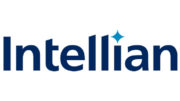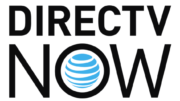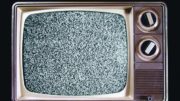They don’t make it easy. In fact, in many cases they don’t even make it possible. In 2015, DIRECTVimplemented HDCP on many channels, meaning that recording the output of a DIRECTV DVR will get harder and harder. HDCP is a technology that requires a TV to be in constant communication with the DVR or the only thing that goes out is a black screen. You can use the component connection on a DVR to get an HD picture but in some cases HDCP will interfere with that too; if the HDMI cable is connected but it’s not getting the proper information it could even black out the image on the component cables.
A game recorder or video capture card?
In the past, you’ve been able to use a a game recorder to capture the output from your DVR and record it onto a hard drive. That option is still open to you if you record things from an over-the-air antenna because that signal is required to be unencrypted. However, more and more companies are joining Disney (ESPN) and Time Warner (HBO) in requiring that their signals be encrypted. There are “black hat” solutions out there to help you get past HDCP, but you’ll have to search for them yourself. This isn’t that sort of blog. We follow the rules here.
What can you do? The honest truth is, not much. There are some standard definition capture devices you can find on other sites. That will give you something. You can set up a high-end PC and some sort of streaming device like a Slingbox and capture the streamed video from it. A lot of people just resort to pointing a phone at the TV and getting the quality they get that way.
Better options
You’re better off hoping that the program you want is available for purchase or for free streaming, and getting it that way. It’s not a great solution… but it’s better than pointing your phone at the TV and recording it. Of course if the program is streaming for free there’s no guarantee it will be there permanently. Truth is, for people who really want to archive their own content there isn’t a good choice.
For people who worry about losing recordings because of hardware changes, there is an option. Moving from DIRECTV to AT&T TV gives you almost the same programming at almost the same prices. It also includes a 500-hour cloud DVR which means you’ll never worry about losing recordings to a broken hard drive. If you’re interested, call our team at 888-233-7563.
Why is this such a hassle?
Blame those content providers who really think that someone somewhere is going to record their programs and stream them for free to the entire world. I mean, that goes on anyway, let’s be honest. I’m not convinced that all this content protection stuff makes one bit of difference to the people determined to pirate programming. As I said, there are devices out there that really make this a non-issue. It’s just that they’re not strictly legal and we don’t sell them. Unfortunately, this dependence on copy protection just makes it hard for honest folks to save a permanent copy of that time someone they knew was on The Voice.
It’s the fact that you can get a more or less perfect digital copy that bothers these companies. They cared a little when everyone used VHS tapes. VHS tapes were never really a threat, though. They get a lot worse with every copy so there was some sort of logical limit. Now, one digital master can go out to billions of people and each one will have the same quality. It can happen at lightning speed, too. That’s why there is so much talk of content protection. It’s also why it’s just so hard to copy things from your DVR now.
It’s not going to get easier
The next generation of over-the-air broadcasting contains the provision for content protection as well. That means the last avenue for legally archiving free TV will essentially go away. It’s not clear whether or not broadcasters will actually use this feature. Still you have to think that if it’s built into all the broadcast equipment, they probably will.





